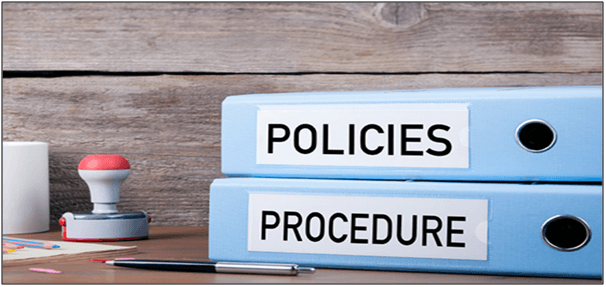Procurement fraud is a growing global problem. It presents a particularly high profile and negative impact on the construction industry. It can cost a construction business millions of dollars and damage its reputation. Procurement fraud relates to purchasing goods, services or commissioning construction projects from third parties. From award to execution, employees and external parties (such as suppliers, distributors and competitors) have significant opportunities to commit procurement fraud.
Most procurement fraud schemes fall under the fraud category of “bribery and corruption.” In cases of the bribery, fraudsters wrongfully use their influence in a business transaction to procure benefits for themselves, or another person, contrary to their duty to their employer or the rights of another. Common examples include accepting kickbacks and engaging in conflicts of interest. The larger the construction project, the more sophisticated is the process needed to manage it. The following are the key strategies of fraud prevention for the construction procurement.
Table of Contents
Purchasing Policies and Procedures

A workplace policy is a set of rules and principles that aims to guide employees in how to behave in the workplace. When designing, always try to get input and feedback from users to check that the format is user friendly and relevant. Policies and procedures for procurement need to have structure and a sequence. Clear and consistent purchasing policies allow employees to clearly understand their roles and responsibilities within predefined limits.
Delegate purchasing authority to specific employees and set out the spending limits for the employees to purchase goods up to a certain value. Additionally, it should provide guidance regarding ethics and code of conduct for everyone in the purchasing process. Policies and procedures need to be reviewed and updated regularly to remain relevant and effective. Keeping them realistic and easy to understand and follow will help to ensure compliance.
Segregation of Duties
An appropriate segregation of duties will be in place within the organizations to prevent fraud and minimize errors. In general, the approval function, the accounting function and procurement duties should be separated among employees. Ensure that roles are allocated to avoid segregation or duty conflict.
The aim is to eliminate all conflicts prior to the allocation of roles, however, segregating duties can be difficult for small contractors with limited staff. Where duties cannot be separated, appropriate compensating controls will be required to be executed. Consideration for obtaining outsourcing support is a good idea to help small contractors achieve segregation of duties.
Segregation of duties should be implemented so that no single individual is empowered to oversee the whole transaction. For example, the person who issue purchase order should not be the same person who will approve the purchase order. The person who approves the purchase of goods or services should not be the person who authorized the payment.
The chart below is a basic procurement workflow from purchase request to payment.

Hiring the Right Person
Employees are company’s biggest asset. The right employee with the proper training can help businesses increase productivity, improving employee morale and reduce costs. Any one person can greatly impact the company and the working environment. The hiring process is important and tedious, so it is essential to take time to ensure hiring the right person for the right job. If you rush the process, you may hire someone who isn’t a good fit. Screen all applicants against factors such as qualifications, skills, experience, and characteristics. Make sure to perform a background check including work references, education references, criminal history etc. A background check for an employee can provide important insights into an individual’s past behavior and potentially be an indicator of the individual’s future actions.

Educating and Training Employee
Procurement fraud can go undetected due to employee lack of knowledge in recognizing the early warning signs of fraudulent activities. Employees may be unaware of how to report their suspicions or have a lack of confidence in the integrity of the complaint management process. The department has mandatory fraud awareness training to assist in raising the awareness of fraud and how employees should respond should this type of activity be suspected or detected. Educate employees about procurement practices including bid process, how to select vendors, conflict of interest etc. Additionally, all employees should sign a statement acknowledging their understanding of and commitment to the training program.
The department should develop fraud awareness activities which are to be conducted throughout the year. This is an opportunity to revisit lessons learned and promote awareness of new, emerging or changing fraud risks. During fraud awareness activities, managers are encouraged to facilitate discussions with their work groups regarding the importance of fraud awareness and effective fraud controls.

Developing Effective Internal Control
Internal controls serve as the first line of defence in preventing fraud and ensuring the viability of your organization. Internal control weaknesses are responsible for nearly half of all frauds committed. An effective internal control design needs to include:
The full content is only visible to SIPMM members
Already a member? Please Login to continue reading.
References
Asavin Wattanajantra. (2018). “Don’t Let Procurement Fraud Eat Into Your Profits”. Retrieved from https://www.sage.com/en-us/blog/procurement-fraud/, accessed 15/12/2019.
Doreen Chow Fong Meng, DPSM. (2019). “Crucial Strategies to Prevent Procurement Fraud”. Retrieved from SIPMM: https://publication.sipmm.edu.sg/crucial-strategies-prevent-procurement-fraud/, accessed 12/12/2019.
Edward Quigg. (2018). “11 Ways Construction Firms Can Prevent Procurement Corruption”. Retrieved from http://www.constructionmanagermagazine.com/legal/11-ways-construction-firms-can-prevent-procurement/, accessed 15/12/2019.
Ivy Ng Lian Leck, DPSM. (2018). “Six Key Strategies to Avoid Procurement Fraud”. Retrieved from SIPMM: https://publication.sipmm.edu.sg/six-key-strategies-avoid-procurement-fraud/, accessed 12/12/2019.
Levelset, (2019). “Construction Fraud: Common Issues and How to Combat Them”. Retrieved from https://www.levelset.com/blog/construction-fraud/, accessed 15/12/2019.
Louise Reilly. (2019). “How to Tackle Procurement Fraud in Your Organisation”. Retrieved from https://www.icslearn.co.uk/blog/posts/2019/july/how-to-tackle-procurement-fraud-in-your-organisation/, accessed 15/12/2019.
Putri Pertiwi. (2019). “ 5 Actions to Mitigate Procurement Fraud in Your Company”. Retrieved from https://www.integrity-indonesia.com/blog/2019/03/01/5-actions-to-mitigate-procurement-fraud-in-your-companies/, accessed 15/12/2019.
Stephanie Schindler. (2017). “7 Steps to Prevent Procurement Fraud”. Retrieved from https://www.vroozi.com/2017/09/14/7-steps-prevent-procurement-fraud/, accessed 15/12/2019.
Whirlwind Team. (2017). “Construction Fraud: How to Detect, Prevent and Avoid Altogether”. Retrieved from https://www.whirlwindsteel.com/building-for-life-blog/, accessed 12/12/2019.

